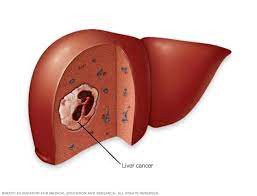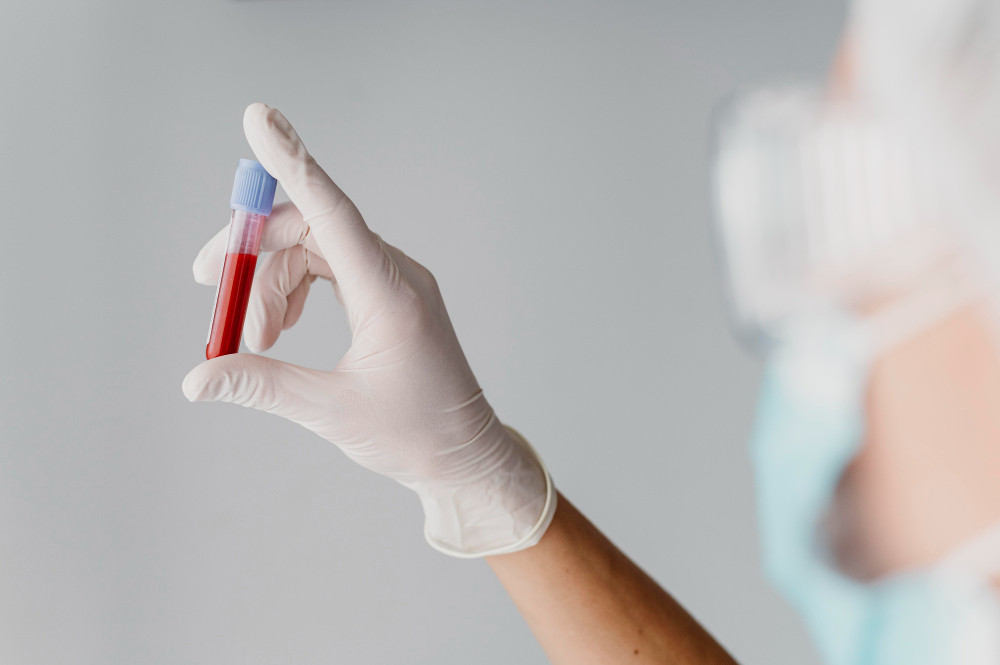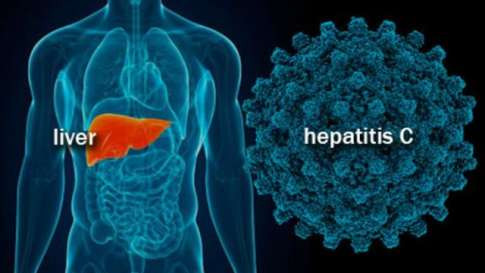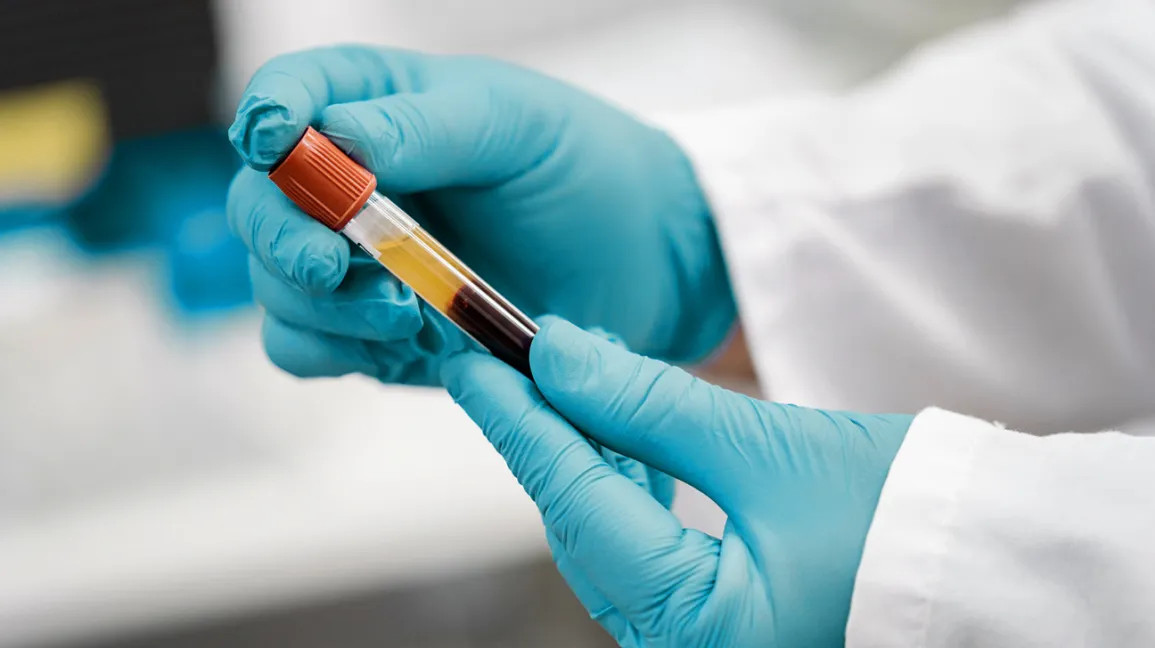Definisi
Hepatitis C adalah penyakit virus yang dipicu oleh infeksi virus hepatitis C (HCV). Jika tidak dideteksi atau diobati, dapat meningkat menjadi kondisi kronis yang menyebabkan peradangan dan kemungkinan kerusakan hati. Infeksi virus hepatitis C seringkali tidak ada gejala, jadi tes hepatitis C sangat penting. Skrining akan membantu menentukan HCV dari penyebab hepatitis lainnya, termasuk hepatitis A dan hepatitis B.
Tes antibodi HCV dapat mendeteksi jika tubuh telah terinfeksi. Tes ini mencari antibodi terhadap HCV dalam darah.
Jika Anda berusia 18 tahun atau lebih, sebaiknya lakukan skrining hepatitis C setidaknya sekali seumur hidup. Tes ini juga dianjurkan selama kehamilan atau jika Anda memiliki faktor risiko infeksi HCV. Hepatitis C fase akut seringkali tidak menunjukkan gejala, skrining merupakan cara penting untuk mendiagnosis hepatitis C sebelum menyebabkan kerusakan hati.
Tujuan tes hepatitis C untuk menentukan apakah tubuh telah terinfeksi oleh HCV dan membantu terapi pengobatan. HCV dapat ditemukan dalam darah atau cairan tubuh lainnya pada orang yang terinfeksi.
Indikasi
Jika Anda berusia 18 tahun atau lebih, penting untuk melakukan skrining hepatitis C setidaknya sekali seumur hidup. Virus ini sering muncul tanpa gejala. Skrining juga dianjurkan selama kehamilan dan jika seseorang memiliki faktor risiko terinfeksi HCV. Jika Anda memiliki faktor risiko, skrining berkala dianjurkan selama faktor risiko tersebut tetap ada.
Faktor risiko hepatitis C meliputi:
- Riwayat penggunaan narkoba suntik
- Menjalani transfusi darah atau transplantasi organ
- Melakukan prosedur cuci darah
- Bersentuhan dengan jarum, termasuk di tempat kerja, membuat tato atau tindikan
- Bekerja atau tinggal di penjara
- Lahir dari ibu yang mengidap hepatitis C
- Mengalami infeksi HIV
- Melakukan hubungan seksual tanpa pengaman
Tes hepatitis C juga dapat dilakukan saat pemeriksaan fungsi hati tidak normal atau saat mendiagnosis penyebab kerusakan hati. Meskipun hepatitis C seringkali tidak menimbulkan gejala, Anda dapat mengalami gejala dalam waktu satu hingga tiga bulan setelah tertular virus.
Beberapa tanda umum infeksi HCV meliputi:
- Urine berwarna kuning gelap
- Kelelahan
- Demam
- Feses berwarna abu-abu
- Nyeri di perut atau persendian
- Mual, muntah, atau kehilangan nafsu makan
- Penyakit kuning pada kulit dan bagian putih mata
Kontraindikasi
Tidak ada kontraindikasi atau kondisi yang membuat seseorang tidak bisa melakukan pemeriksaan ini.
Persiapan Sebelum Pemeriksaan
Tidak ada persiapan khusus sebelum melakukan pemeriksaan anti HCV. Pemeriksaan ini bisa dilakukan dalam keadaan tidak berpuasa. Meskipun demikian, Anda disarankan untuk melakukan konsultasi medis terlebih dahulu dengan dokter sebelum melakukan pemeriksaan, sebab ada beberapa kondisi yang dapat menganggu hasil sehingga hasilnya kurang akurat.
Sebelum melakukan pemeriksaan, disarankan untuk beristirahat yang cukup dan mencukupi kebutuhan cairan dengan minum air yang cukup. Hal ini dapat mempermudah petugas lab untuk mengakses pembuluh darah Anda.
Prosedur Pemeriksaan
Tes dilakukan dengan sampel darah. Jarum digunakan untuk mengambil darah dari pembuluh darah di lengan atau tangan. Setelah dilakukan pengambilan sampel, bekas tusukan akan ditutup menggunakan perban. Tidak ada batasan aktivitas setelah pengambilan sampel. Anda mungkin mengalami sedikit memar dan nyeri, namun hanya sementara dan dalam waktu singkat saja.
Nilai Normal dan Abnormal
Jika hasil pemeriksaan antibodi hepatitis C positif, hal itu berarti Anda pernah terinfeksi virus di masa lampau tetapi tidak memiliki HCV pada saat ini. Hasil pemeriksaan akan menunjukkan hasil non-reaktif (negatif) atau hasil reaktif (positif).
Jika Anda mendapatkan hasil reaktif atau positif, dokter akan menyarankan pemeriksaan lanjutan dengan menguji RNA HCV. Pemeriksaan ini juga dikenal sebagai tes PCR. Hasilnya dilaporkan positif, artinya Anda terkena virus, atau negatif artinya tidak ada HCV dalam tubuh Anda.
Bila diperlukan, Anda dapat melakukan tes kuantitatif RNA hepatitis C. Hasil pemeriksaannya berupa angka. Tes ini menentukan viral load HCV dalam darah.
Hasil dan Saran (Pemeriksaan Lanjutan)
Jika Ada positif HCV dan ingin menentukan tatalaksana pengobatan terbaik, tes genotipe akan mengidentifikasi jenis hepatitis C. Pemeriksaan ini dapat membantu dokter mengevaluasi fungsi hati. Tes lanjutan diperlukan untuk memantau kesehatan Anda dan memandu pengobatan. Dokter mungkin akan menyarankan pemeriksaan lanjutan yaitu pemeriksaan HIV dan hepatitis B, karena infeksi ini menyebar dengan cara yang sama seperti HCV.
Jika hasil tes Anda positif dan sedang dalam pengobatan, dokter akan melanjutkan tes RNA HCV kuantitatif untuk melihat apakah pengobatan yang diberikan tersebut berhasil.
Konsultasikan ke Dokter yang Tepat
Hasil pemeriksaan anti HCV pada orang dewasa dapat dikonsultasikan dengan dokter umum, untuk selanjutnya dilakukan pemeriksaan lanjutan ataupun memulai terapi untuk diagnosis yang sesuai. Anda juga dapat berkonsultasi dengan dokter penyakit dalam atau konsultan hepatologi untuk berdiskusi mengenai masalah fungsi hati lebih jauh. Pada pasien anak, hasil pemeriksaan selain normal harus dikonsultasikan dengan dokter spesialis anak.
Mau tahu informasi seputar hasil pemeriksaan laboratorium, radiologi, dan lainnya? Cek di sini, ya!
- dr. Monica Salim
CDC - Hepatitis C Testing. (2020). Retrieved 23 May 2023, from https://www.cdc.gov/hepatitis/hcv/HepatitisCTesting.htm
Testing - Hepatitis C Test. (2021). Retrieved 23 May 2023, from https://www.testing.com/tests/hepatitis-c-test/
WebMD - Hepatitis C Diagnosis and Tests. (2022). Retrieved 23 May 2023, from https://www.webmd.com/hepatitis/diagnostic-tests-hepatitis-c-virus











